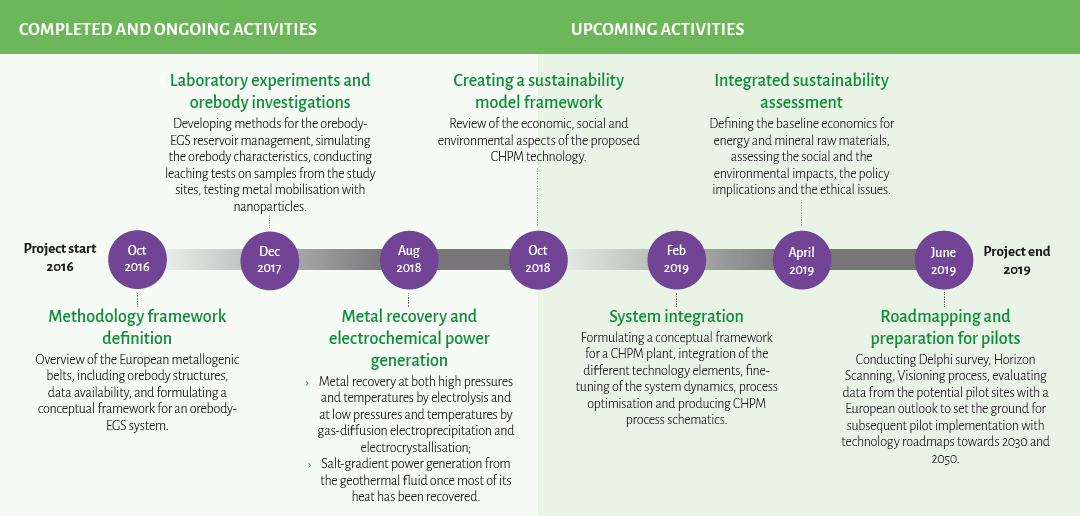Press release I Brussels I January 2019
The European economy is heavily dependent upon energy and mineral supply for industry and society. Lowering the costs and the environmental impact of energy production and decreasing the dependence on imported strategic raw materials are therefore key challenges. CHPM2030 is an ambitious research project funded by the European Union under the Horizon 2020 programme for Research and Innovation that has been set up to help address these challenges. CHPM2030 is developing a novel technology that will combine geothermal energy production with metals extraction from the geothermal fluid in a single interlinked process, the Combined Heat Power and Metals (CHPM) technology.
In order to improve the economics of deep geothermal energy development, the project investigates possible technologies for manipulating metal-bearing geological formations with geothermal potential at a depth of 3 to 4 km, and potentially even deeper. The project’s aim is that the co-production of energy and metals will become possible and may be optimised according to market demands in the future. The project will also provide a proof of the technological concept on a laboratory scale.
Experts from all over Europe are joining efforts to make this novel technology become reality. Their work is divided into eight interlinked parts, known as Work Packages, which are presented in a video (https://youtu.be/KycincLt9FQ) that has recently been released. The 42-months project is now entering its final stage. Many important tasks have already been completed and the project team is now working on the last elements to conclude the project successfully:
- System integration: The contemporary power plant design will be adapted to the expected temperature, between 120 and 190 degrees Celsius, and extreme salinity conditions that will occur under the CHPM2030 scheme.
- Integrated sustainability assessments: To ensure that the CHPM technology is safe for the environment and for society, the project is setting up a framework to assess environmental and socio-economic impacts, and is carrying out baseline economics for energy and mineral raw materials.
- Roadmapping and preparation of pilots: To pave the way for the long-term future of the CHPM technology, the project team is analysing study areas in the UK, Romania, Sweden and Portugal, where the technology could be applied, and is using different foresight tools for the horizon 2030 – 2050.
Preliminary outcomes and results will be presented to the public at the CHPM2030 final conference which will be held on 23 May 2019 in Delft, the Netherlands, in the framework of the EuroWorkshop “Geology and the Energy Transition”.
| CONTACT |
|
Coordinator – University of Miskolc (Hungary) Éva Hartai: foldshe@uni-miskolc.hu |


